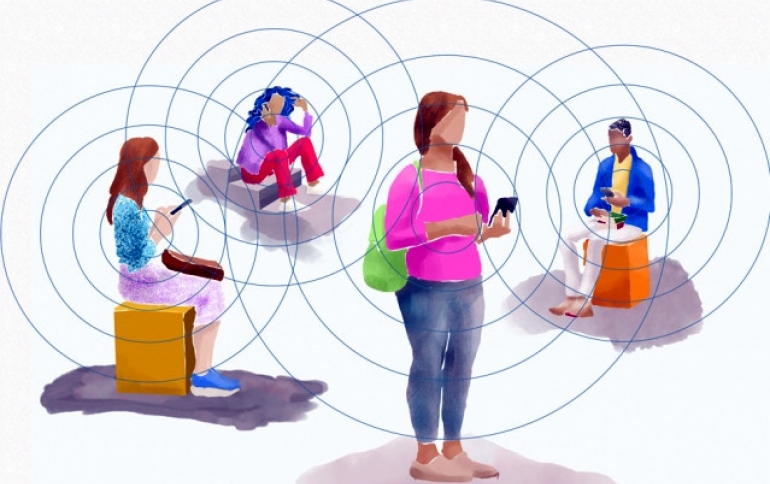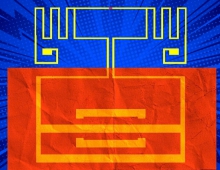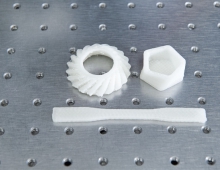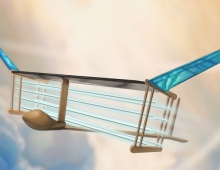
MIT Researchers Says New Coronavirus Contact Tracing App Preserves Privacy
Bluetooth signals from your smartphone could automate Covid-19 contact tracing while preserving privacy.
A team led by MIT researchers and including experts from many institutions is developing a system that augments “manual” contact tracing by public health officials, while preserving the privacy of all individuals.
The system relies on short-range Bluetooth signals emitted from people’s smartphones. These signals represent random strings of numbers, likened to “chirps” that other nearby smartphones can remember hearing.
If a person tests Covid-19 positive, they can upload the list of chirps their phone has put out in the past 14 days to a database. Other people can then scan the database to see if any of those chirps match the ones picked up by their phones. If there’s a match, a notification will inform that person that they may have been exposed to the virus, and will include information from public health authorities on next steps to take. Vitally, this entire process is done while maintaining the privacy of those who are Covid-19 positive and those wishing to check if they have been in contact with an infected person.
“I keep track of what I’ve broadcasted, and you keep track of what you’ve heard, and this will allow us to tell if someone was in close proximity to an infected person,” says Ron Rivest, MIT Institute Professor and principal investigator of the project. “But for these broadcasts, we’re using cryptographic techniques to generate random, rotating numbers that are not just anonymous, but pseudonymous, constantly changing their ‘ID,’ and that can’t be traced back to an individual.”
This approach to private, automated contact tracing will be available in a number of ways, including through the privacy-first effort launched at MIT in response to Covid-19 called SafePaths. This set of mobile apps is under development by a team led by Ramesh Raskar of the MIT Media Lab. The design of the new Bluetooth-based system has benefited from SafePaths’ early work in this area.
Smartphones already have the ability to advertise their presence to other devices via Bluetooth. Apple’s “Find My” feature, for example, uses chirps from a lost iPhone or MacBook to catch the attention of other Apple devices, helping the owner of the lost device to eventually find it.
“Find My inspired this system. If my phone is lost, it can start broadcasting a Bluetooth signal that’s just a random number; it’s like being in the middle of the ocean and waving a light. If someone walks by with Bluetooth enabled, their phone doesn’t know anything about me; it will just tell Apple, ‘Hey, I saw this light,’” says Marc Zissman, the associate head of MIT Lincoln Laboratory’s Cyber Security and Information Science Division and co-principal investigator of the project.
With their system, the team is essentially asking a phone to send out this kind of random signal all the time and to keep a log of these signals. At the same time, the phone detects chirps it has picked up from other phones, and only logs chirps that would be medically significant for contact tracing — those emitted from within an approximate 6-foot radius and picked up for a certain duration of time, say 10 minutes.
Phone owners would get involved by downloading an app that enables this system. After a positive diagnosis, a person would receive a QR code from a health official. By scanning the code through that app, that person can upload their log to the cloud. Anyone with the app could then initiate their phones to scan these logs. A notification, if there’s a match, could tell a user how long they were near an infected person and the approximate distance.
“We’re not tracking location, not using GPS, not attaching your personal ID or phone number to any of these random numbers your phone is emitting,” says Daniel Weitzner, a principal research scientist in the MIT Computer Science and Artificial Intelligence Laboratory (CSAIL) and co-principal investigator of this effort. “What we want is to enable everyone to participate in a shared process of seeing if you might have been in contact, without revealing, or forcing anyone to reveal, anything.”
Lincoln Laboratory engineers have led the prototyping of the system. One of the hardest technical challenges has been achieving interoperability, that is, making it possible for a chirp from an iPhone to be picked up by an Android device and vice versa. A test at the laboratory late last week proved that they achieved this capability, and that chirps could be picked up by other phones of various makes and models.
A vital next step toward implementation is engaging with the smartphone manufacturers and software developers — Apple, Google, and Microsoft. “They have a critical role here. The aim of the prototype is to prove to these developers that this is feasible for them to implement,” Rivest says. As those collaborations are forming, the team is also demonstrating its prototype system to state and federal government agencies.
Rivest emphasizes that collaboration has made this project possible. These collaborators include the Massachusetts General Hospital Center for Global Health, CSAIL, MIT Lincoln Laboratory, Boston University, Brown University, MIT Media Lab, The Weizmann Institute of Science, and SRI International.
The team also aims to play a central, coordinating role with other efforts around the country and in Europe to develop similar, privacy-preserving contact-tracing systems.
Three U.S. local governments plan to sign deals this week to become the first to adopt a location tracking app aimed at preventing new outbreaks of the novel coronavirus, Massachusetts Institute of Technology-led project said Thursday.
An additional 17 state and municipal governments are considering introducing the app in their communities as soon as in the next two weeks.





















